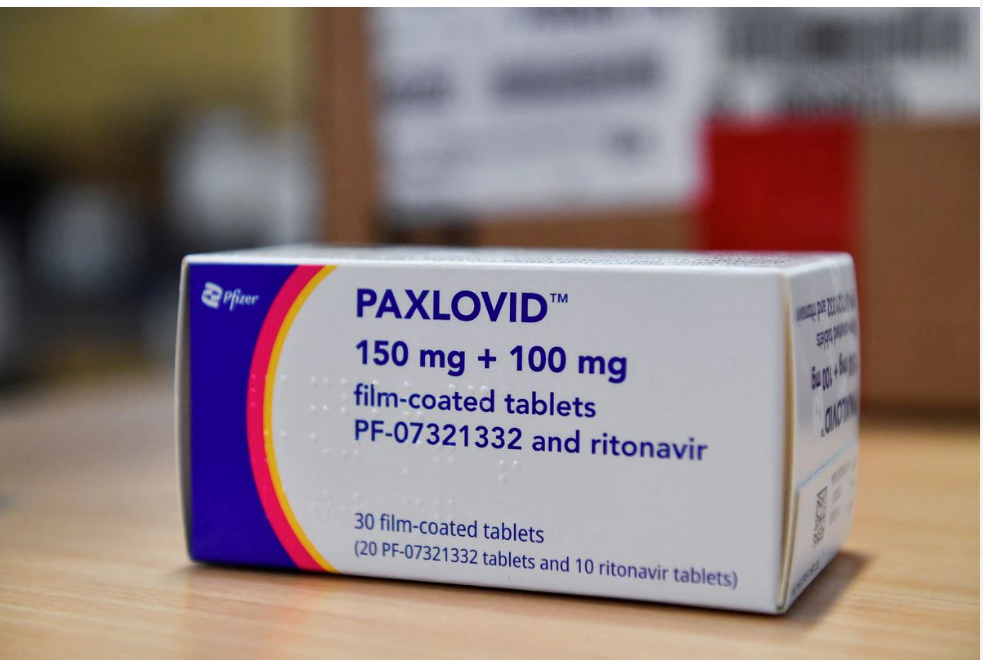Abstract
Long Covid – the disease encompassing the post-acute sequelae of SARS-CoV-2 (PASC) —affects millions of people around the world. Prevention of PASC is an urgent public health priority. In this work, we aimed to examine whether treatment with nirmatrelvir in the acute phase of COVID-19 is associated with reduced risk of post-acute sequelae. We used the healthcare databases of the US Department of Veterans Affairs to identify users of the health system who had a SARS-CoV-2 positive test between March 01, 2022 and June 30, 2022, were not hospitalized on the day of the positive test, had at least 1 risk factor for progression to severe COVID-19 illness and survived the first 30 days after SARS-CoV-2 diagnosis. We identify those who were treated with oral nirmatrelvir within 5 days after the positive test (n=9217) and those who received no COVID-19 antiviral or antibody treatment during the acute phase of SARS-CoV-2 infection (control group, n= 47,123). Inverse probability weighted survival models were used to estimate the effect of nirmatrelvir (versus control) on a prespecified panel of 12 post-acute COVID-19 outcomes and reported as hazard ratio (HR) and absolute risk reduction (ARR) in percentage at 90 days. Compared to the control group, treatment with nirmatrelvir was associated with reduced risk of PASC (HR 0.74 95% CI (0.69, 0.81), ARR 2.32 (1.73, 2.91)) including reduced risk of 10 of 12 post-acute sequelae in the cardiovascular system (dysrhythmia and ischemic heart disease), coagulation and hematologic disorders (deep vein thrombosis, and pulmonary embolism), fatigue, liver disease, acute kidney disease, muscle pain, neurocognitive impairment, and shortness of breath. Nirmatrelvir was also associated with reduced risk of post-acute death (HR 0.52 (0.35, 0.77), ARR 0.28 (0.14, 0.41)), and post-acute hospitalization (HR 0.70 (0.61, 0.80), ARR 1.09 (0.72, 1.46)). Nirmatrelvir was associated with reduced risk of PASC in people who were unvaccinated, vaccinated, and boosted, and in people with primary SARS-CoV-2 infection and reinfection. In sum, our results show that in people with SARS-CoV-2 infection who had at least 1 risk factor for progression to severe COVID-19 illness, treatment with nirmatrelvir within 5 days of a positive SARS-CoV-2 test was associated with reduced risk of PASC regardless of vaccination status and history of prior infection. The totality of findings suggests that treatment with nirmatrelvir during the acute phase of COVID-19 reduces the risk of post-acute adverse health outcomes.
Competing Interest Statement
The authors have declared no competing interest.
Funding Statement
This research was funded by the United States Department of Veterans Affairs.
Author Declarations
I confirm all relevant ethical guidelines have been followed, and any necessary IRB and/or ethics committee approvals have been obtained.
Yes
The details of the IRB/oversight body that provided approval or exemption for the research described are given below:
The Institutional Review Board of the VA Saint Louis Health Care System gave approval of this study.
I confirm that all necessary patient/participant consent has been obtained and the appropriate institutional forms have been archived, and that any patient/participant/sample identifiers included were not known to anyone (e.g., hospital staff, patients or participants themselves) outside the research group so cannot be used to identify individuals.
Yes
I understand that all clinical trials and any other prospective interventional studies must be registered with an ICMJE-approved registry, such as ClinicalTrials.gov. I confirm that any such study reported in the manuscript has been registered and the trial registration ID is provided (note: if posting a prospective study registered retrospectively, please provide a statement in the trial ID field explaining why the study was not registered in advance).
Yes
I have followed all appropriate research reporting guidelines and uploaded the relevant EQUATOR Network research reporting checklist(s) and other pertinent material as supplementary files, if applicable.
Yes
Paper in collection COVID-19 SARS-CoV-2 preprints from medRxiv and bioRxiv




